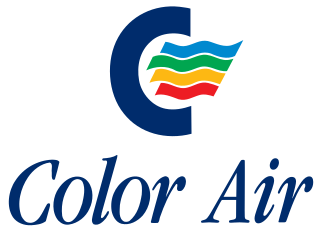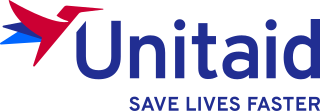
German air passenger taxes are excise duties and other charges levied by the German government on most passengers departing by air, either in addition to the price of the airline ticket or incorporated into the ticket price.

German air passenger taxes are excise duties and other charges levied by the German government on most passengers departing by air, either in addition to the price of the airline ticket or incorporated into the ticket price.
A departure tax is to apply for all departures starting from 1 January 2011. The amount depends on the destination country; the following table shows the minimum payable (agents may charge tax handling costs).
| Rate from Jan 2023 onward [1] | |
|---|---|
| Countries listed in Anlage 1 zum LuftVStG | EUR 12.73 |
| Countries listed in Anlage 2 zum LuftVStG | EUR 32.25 |
| all other Countries | EUR 58.06 |
| children under 2 without seat | EUR 0.00 |

Checked baggage is luggage delivered to an airline or train for transportation in the hold of an aircraft, storage on a coach bus or baggage car of a passenger train. Checked baggage is inaccessible to the passenger during the flight or ride, as opposed to carry-on baggage.

A low-cost carrier (LCC) or low-cost airline, also called no-frills, budget, or discount carrier or airline, is an airline that is operated with an emphasis on minimizing operating costs. It sacrifices certain traditional airline luxuries for cheaper fares. To make up for revenue lost in decreased ticket prices, the airline may charge extra fees, such as for carry-on baggage. As of April 2020, the world's largest low-cost carrier is Southwest Airlines, which operates primarily in the United States, as well as in some surrounding areas.
An airport improvement fee or embarkation fee or airport tax or service charge or service fee is an additional fee charged to departing and connecting passengers at an airport. It is levied by government or an airport management corporation and the proceeds are usually intended for funding of major airport improvements or expansion or airport service. Some airports do not levy these fees on connecting passengers who do not leave the airport or whose connecting flight is within a specific timeframe after they arrive.
Economy class, also called third class, coach class, steerage, or to distinguish it from the slightly more expensive premium economy class, standard economy class or budget economy class, is the lowest travel class of seating in air travel, rail travel, and sometimes ferry or maritime travel. Historically, this travel class has been called tourist class or third class on ocean liners.

A duty-free shop or store is a retail outlet whose goods are exempt from the payment of certain local or national taxes and duties, on the requirement that the goods will be sold to travelers who will take them out of the country, who will then pay duties and taxes in their destination country. Which products can be sold duty-free vary by jurisdiction, as well as how they can be sold, and the process of calculating the duty or refunding the duty component.

Color Air AS was the first Norwegian low-cost airline. It operated from Oslo Airport, Gardermoen in 1998 and 1999 with a fleet of three Boeing 737-300 aircraft. Color Air was a brand extension of Color Line, which shared a common owner in the Olav Nils Sunde-controlled Color Group. The airline operated five daily round trips from Oslo to Trondheim and Bergen, four to Ålesund and one to London, in addition to a weekly trip to Alicante. Color Air pioneered the low-cost business model in Norway, with a denser seating, no frills and lack of a frequent flyer program. Tickets were sold only via the Internet, by telephone or in supermarkets; when bought from travel agents, there was a 200 kr surcharge.

The Air Passengers Rights Regulation 2004 is a regulation in EU law establishing common rules on compensation and assistance to passengers in the event of denied boarding, flight cancellations, or long delays of flights. It requires compensation of €250 to €600 depending on the flight distance for delays over of at least three hours, cancellations, or being denied boarding from overbooking. Delays shorter than three hours means no entitlement to any compensation of any kind even if the delay was classified as non-extraordinary. Airlines must provide refreshments and accommodation where appropriate. The Court of Justice of the European Union has interpreted passenger rights strictly, so that there are virtually no exceptions for airlines to evade their obligations for breach of contract.

Air Passenger Duty (APD) is an excise duty which is charged on the carriage of passengers flying from a United Kingdom or Isle of Man airport on an aircraft that has an authorised take-off weight of more than 5.7 tonnes or more than twenty seats for passengers. The duty is not payable by inbound international passengers who are booked to continue their journey within 24 hours of their scheduled time of arrival in the UK. If a passenger "stops-over" for more than 24 hours, duty is payable in full.

An airline ticket is a document or electronic record, issued by an airline or a travel agency, that confirms that an individual is entitled to a seat on a flight on an aircraft. The airline ticket may be one of two types: a paper ticket, which comprises coupons or vouchers; and an electronic ticket.

Unitaid is a global health initiative that works with partners to bring about innovations to prevent, diagnose and treat major diseases in low- and middle-income countries, with an emphasis on tuberculosis, malaria, and HIV/AIDS and its deadly co-infections. Founded in 2006, the organization funds the final stages of research and development of new drugs, diagnostics and disease-prevention tools, helps produce data supporting guidelines for their use, and works to allow more affordable generic medicines to enter the marketplace in low- and middle-income countries. Hosted by the World Health Organization (WHO) in Geneva, Unitaid was established by the governments of Brazil, Chile, France, Norway and the United Kingdom.
Airline reservation systems (ARS) are systems that allow an airline to sell their inventory (seats). It contains information on schedules and fares and contains a database of reservations and of tickets issued. ARSs are part of passenger service systems (PSS), which are applications supporting the direct contact with the passenger.

In commercial aviation, buy on board (BoB) is a system in which in-flight food or beverages are not included in the ticket price but are purchased on board or ordered in advance as an optional extra during or after the booking process. Some airlines, including almost all low-cost carriers and a handful of flag carriers, have buy-on-board food and beverages as part of their ancillary revenue generation.
The Air Travel Tax was an Irish tax applied to flights departing from airports in Ireland. It was introduced in the 2009 Budget. Until 28 February 2011, there were two rates of tax, €10 for each passenger flying to an airport more than 300 km from Dublin Airport, and €2 per passenger flying to any other airport within 300 km. As the differential rate was considered by the EU to be an interference with the internal market, this was changed to a flat rate of €3 from 1 March 2011. The tax was opposed by airlines and the tourism industry. Transit passengers are excluded.
A departure tax is a fee charged by a country when a person is leaving the country.
The passenger movement charge (PMC) is an Australian tax payable by passengers departing Australia on international flights or sea transport, whether or not the passenger intends to return to Australia. The PMC was introduced in July 1995 and was initially described as a charge to partially offset the cost to government of the provision of passenger facilitation at airports, principally customs, immigration and quarantine functions.
The solidarity tax on airplane tickets is a surcharge on the civil aviation tax which is destined to finance Unitaid. This tax was initially proposed by Presidents Jacques Chirac of France and Luiz Inácio Lula da Silva of Brazil. It was initially adopted by five founding countries during a conference in Paris on September 14, 2005. Nine countries actually implemented this tax: Cameroon, Chile, Congo, France, Madagascar, Mali, Mauritius, Niger and the Republic of Korea. Norway also contributes through its tax on CO2 emissions.

Corruption in Sudan is substantial, as it is considered one of the most corrupt nations in the world. On the 2010 World Bank Worldwide Governance Indicators, on one hundred point scale, it scored in the single digits in every category, including 0.9 for political stability, 6.2 for rule of law, 7.2 for regulatory quality, 6.7 for government effectiveness, and 4.3 for control of corruption. In 2011 Freedom House named Sudan as one of the worst nations for human rights.
In online retail, drip pricing is a sales technique where a headline price is advertised at the beginning of the purchase process, followed by the incremental disclosure of additional fees, taxes or charges. The objective of drip pricing is to gain a consumer's interest in a misleadingly low headline price without the true final price being disclosed until the consumer has invested time and effort in the purchase process and made a decision to purchase.

Types of aviation taxation and subsidies, and implementations, are listed below. Taxation is one of several methods to mitigate the environmental impact of aviation.
Taxation of aviation fuel in the European Union is regulated by the Energy Taxation Directive (2003/96/EG) of 27 October 2003. This prohibits the taxation of commercial aviation fuel, except for commercial domestic flights or by bilateral agreement between member states. As of 2023, commercial aviation fuel is currently tax exempt under the legislation of all member states of the European Union. This tax exemption has been criticised on environmental grounds.